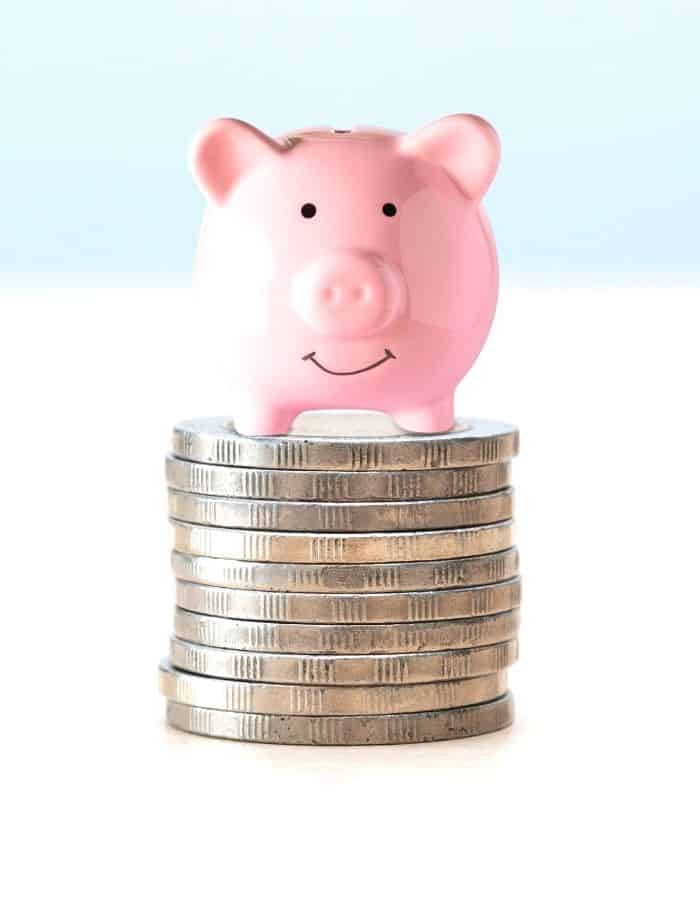We may earn money or products from the companies mentioned in this post, and as an Amazon Associate I earn from qualifying purchases. Please see my full disclosure for more information.
While minimalism can apply to a lot of different facets of your life, it’s undeniable that your approach to spending has a big impact on how this lifestyle works for you. Minimalism saves money in the immediate switch to the lifestyle (thanks to decluttering), but also in your long-term habits, too.

The fact is, when you bring mindfulness to the things that bring genuine joy to your life, you’ll naturally start to re-distribute your finances to those things, too.
Does minimalism really help you save money?
It depends what your version of a minimalist lifestyle is. If you place your focus on the traditional sense of the lifestyle (minimal clutter, mindfulness, more experiences and less things), it can clearly save you money.
However, if your version of a minimalist lifestyle is still beyond your means, then the path becomes a little more difficult to navigate.
Building the habit of less spontaneous, unnecessary buys will save you money – but being aware of what you actually want from life will mean that the money you do spend is on things you really want.
Additionally, it’s worth bearing in mind that being a minimalist will not automatically save you loads of money. Sure, you could declutter your home and sell some stuff online to make some extra cash – but the real savings are long-term, by building more mindful habits that change your approach to spending in the future.
How minimalism saves Money:
1) You are more intentional about spending
Minimalism brings awareness into the things that add real value to your life – and the priorities you want to focus on.
With this awareness, you will naturally start to be more intentional about your spending – especially when it comes to spontaneous buys. You’ll start to ask yourself, do I really need this? Will this add real value to my life? and start to question the way you spend your money.
Shopping like a minimalist simply means being more aware of what you are buying and why you are buying it – when everything in your home has a purpose and a place, it’s harder to justify a random purchase that doesn’t really add anything.
2) You could sell your unwanted clutter
While this is really only something that will impact your finances when you first start decluttering your home, you can definitely make money when you first become a minimalist by selling your clutter.
You could sell your clothes online (and make a real killing from it!), sell furniture, all that unused stuff that clutters up your garage etc.
3) You start focusing on experiences over things
make you A big thing that changed for me when I started to become more minimalist was the realization that I would rather spend my money on experiences and memories than on material possessions.
Of course, some experiences still cost money – but generally, this attitude of not spending money on possessions and saving it towards either bigger life-changing trips, or just smaller trips out, will save money and positively impact your life.
4) Downsizing becomes a legitimate option
When you don’t need a lot (or want it!), the ability to downsize to a smaller and more affordable home becomes a legitimate option that might even be appealing.
It’s no coincidence that the tiny house movement and other alternative living options minimalism are super enter-twined, with many people who decide they want to live with less opting for small, compact homes – plus, the tiny space adds motivation to keep those habits in place!
If you’ve already got some minimalist habits, perhaps you can already identify with a few of the ways minimalism helps you save money above.
Perhaps you’ve noticed something more specific to your own life circumstances?
Let me know if there’s anything big I’ve missed. Personally, as well as all of the above, minimalism has helped me save a lot of money each month because I’m no longer mindlessly spending on clothes, takeaways, and other unnecessary buys.
I spend less on food because I eat a plant-based diet consisting of mostly (cheap) whole foods (and love to cook, so buying food out isn’t appealing!). I try to only buy clothes that I either genuinely need, or that I absolutely love, which definitely helps me save money. And aside from that, my only other main spends are on doing the things I love – adventures in the outdoors, my climbing gym membership, and maybe a friday night out here and there with family or friends.